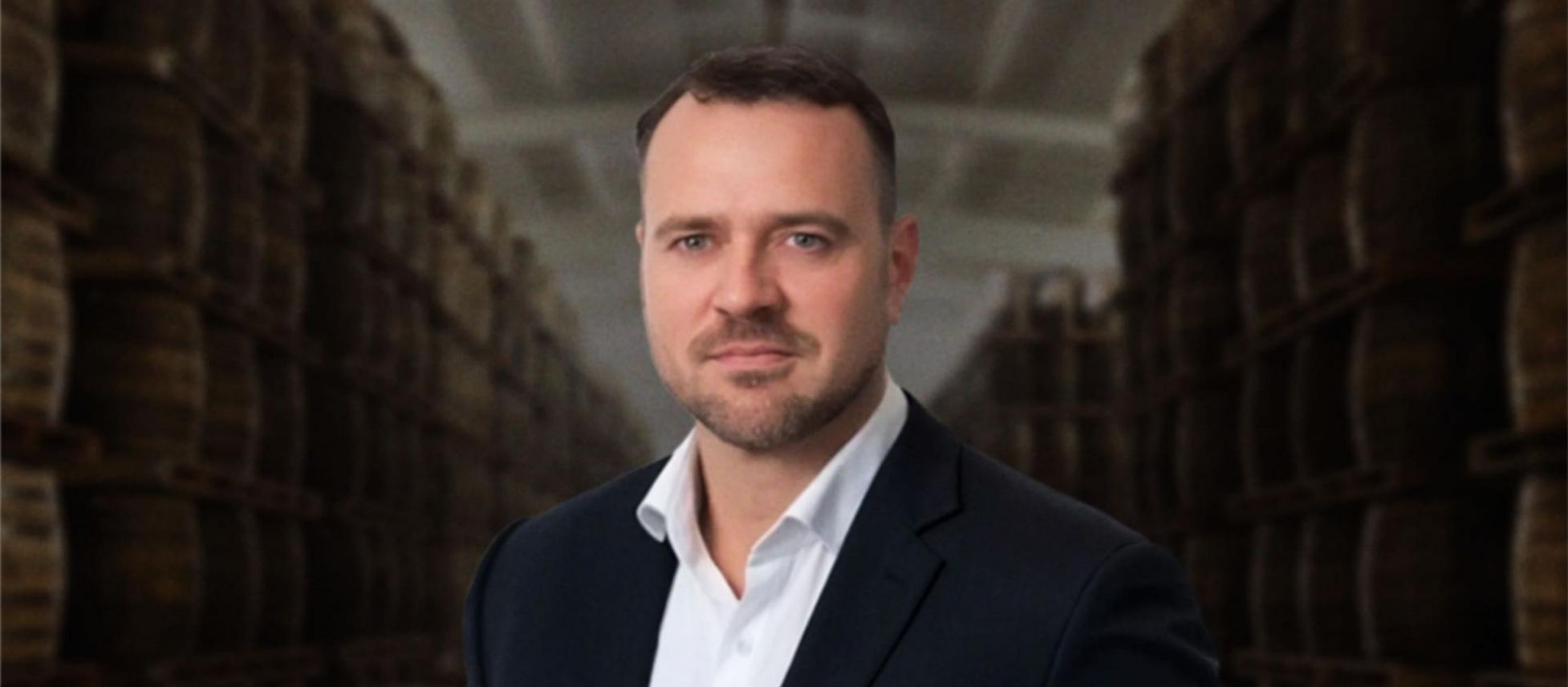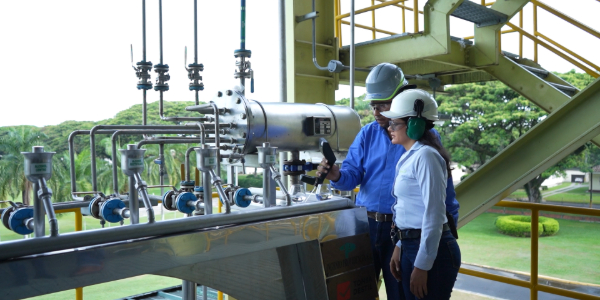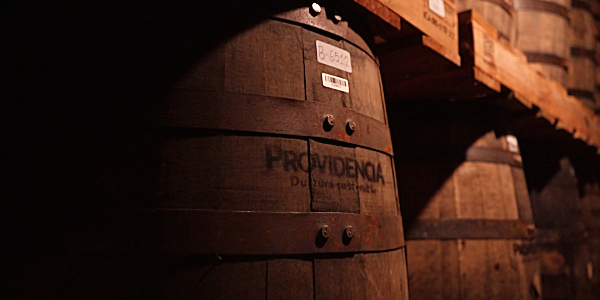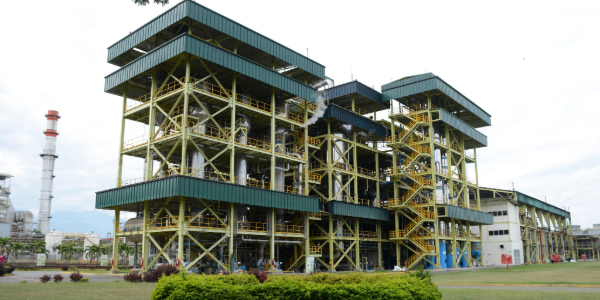Blog
Innovators Profile
Providencia’s Playbook: The Strategy Behind Scaling Bulk Rum in a Changing Market

From being one of Colombia’s largest sugar producers to its strategic investment in aged bulk rum, Thorsten Hartmann, Strategy Consultant at Providencia, shares insights into the evolving landscape of bulk spirits
The global bulk spirits industry is in the midst of significant transformation, driven by shifting consumer preferences, evolving trade dynamics, and the growing demand for premiumization. To better understand how producers can navigate these changes, International Bulk Wine & Spirits sat down with Thorsten Hartmann, a seasoned industry consultant with a wealth of experience in beverage alcohol data and strategy. Having held leadership roles at GlobalData and IWSR, Hartmann now applies his expertise at Providencia, a major Colombian sugar producer that has strategically expanded into the bulk rum sector. In this interview, he discusses Providencia’s journey, the company’s investment in aged rum, and what it takes to stay competitive in today’s dynamic bulk spirits market.
Edited excerpts from the interview.
1. Would it be accurate to say that Providencia specializes exclusively in bulk rum, positioning itself as a dedicated B2B supplier rather than a branded producer?
That’s correct. One of the unique aspects of Providencia in the rum industry is that they do not have a branded rum product in their portfolio. They operate exclusively as a business-to-business (B2B) supplier and are committed to maintaining this focus. Their philosophy is that by not having their own brand, they can fully dedicate themselves to meeting the specific needs of their B2B customers.
Unlike traditional branded rum producers who may sell surplus volumes inconsistently, Providencia prioritizes consistency and reliability. In many cases, surplus rum sold into the market lacks continuity, meaning buyers might not be able to source the exact same batch year after year. Providencia addresses this gap by ensuring a stable and consistent supply, which is a key advantage of their B2B-only model.
2. As a producer of bulk rum, how does Providencia distinguish itself from competitors in the market?
One of Providencia’s key differentiators is its vertical integration. As a cane sugar producer, the company controls the entire process from farming to alcohol production, without relying on external raw material suppliers. This ensures greater consistency and quality in their output. Another defining factor is their commitment to remaining a purely B2B supplier, avoiding branded rum production to fully focus on the needs of their industry partners. Providencia is the first and only company in Colombia to hold an organic sugar certification, allowing them to produce certified organic bulk rum—a significant distinction in the market. They are also Bonsucro-certified and the only BCorp certified sugar alcohol mill in the world, reinforcing their dedication to sustainable sugarcane production.
Uniquely, Providencia is the first company to produce bulk rum domestically in Colombia. While some branded rums claim to be "Made in Colombia," they are often produced using imported bulk rum. Providencia sought to change this by utilizing Colombia’s own sugar production for alcohol manufacturing. Geographically, they hold a strategic advantage with access to both the Pacific and Atlantic Oceans via the Buenaventura and Cartagena ports. This positioning allows them to efficiently ship east, west, and south across Latin America.
3. How does Providencia’s commitment to ESG principles and sustainability-driven innovation differentiate it within the bulk rum sector?
Perhaps their most compelling advantage lies in their strong ESG (Environmental, Social, and Governance) credentials. They are B Corp-certified, with a commitment to sustainability reflected in their low carbon footprint and circular processing methods. Waste byproducts like vinasse or bagasse are repurposed into fertilizer for their sugarcane fields or used to generate electricity for their operations and the local grid. Their advanced irrigation systems have reduced water usage by approximately 50%, and they were the first distillery in Colombia to obtain FSSC 22000 certification.
Beyond their environmental efforts, Providencia is deeply invested in social initiatives. They run their own school, open not just to employees’ children but also to the local community. Additionally, in 2016, they decided to take its environmental commitment to the next level with the creation of the Providencia Ecological Park, an effort to contribute to the protection of biodiversity and life. They actively support educational initiative and drive advancements in agricultural practices. Taken together, these factors give Providencia a significant competitive edge in the bulk rum sector, setting them apart through quality, sustainability, and social responsibility.

Providencia Co, Colombia
4. Given that bulk rum is their primary product, what markets is Providencia currently prioritizing? Additionally, where do you see the most growth potential in the bulk rum industry?
A key focus for Providencia is the domestic Colombian market. While Colombia is a significant branded rum producer, much of its production relies on imported bulk rum rather than domestically sourced alcohol. Providencia aims to shift this dynamic by encouraging local producers to use Colombian bulk rum instead. In the long run, it would be strategically beneficial for the industry to embrace domestically sourced product.
Beyond Colombia, Providencia has a strong presence in global exports. In terms of exports, Latin America and Europe currently hold more potential for growth than the U.S. market. However, they are also beginning to explore opportunities in Asia, where some of the largest rum producers may require specific taste profiles for new product lines. They collaborate with major bulk alcohol traders worldwide, leveraging relationships built through their long-standing involvement in the Extra Neutral Alcohol (ENA) trade. In addition to ENA, they have now expanded their portfolio to include both fresh tafia and aged bulk rum, appealing not only to traders but also to dedicated rum blenders who use it as a foundational component in their own blends.
They are also engaged with multinational beverage companies, supplying rum for specific product lines. Not all brands source rum domestically, as some require particular taste profiles or aged components that must be imported. Providencia fulfills these needs by offering tailored solutions. Additionally, they work with co-packers and private-label producers, a sector that is becoming increasingly significant in the global spirits industry.
5. How is Providencia adapting to evolving industry trends? Given their focus on catering to client needs, how are they aligning with these shifts in the market?
Sustainability and ESG principles remain core to Providencia’s operations, and as consumer expectations around ethical sourcing and transparency continue to rise, their strong foundation in these areas works to their advantage. With multiple certifications, they provide their clients with a ready-made framework to reinforce the quality and credibility of their own branded rum products. These certifications are easily verifiable, making it a straightforward choice for brands looking to highlight sustainability and responsible production in their offerings.
Historically, rum had something of a "wild west" reputation within the spirits industry—lightly regulated, with fewer geographical indications (GIs) compared to Scotch whisky, bourbon, tequila, or mezcal. This lack of structure led to inconsistencies in labeling and perception, often positioning rum as a lower-cost cocktail base rather than a premium sipping spirit. However, the landscape has shifted significantly in recent years. Premiumization has placed a greater emphasis on the quality of raw materials and the aging process, changing how consumers engage with rum. Increasingly, rum is now seen as a competitor to Scotch whisky, Cognac, and other fine brandies, with more consumers choosing to enjoy it neat rather than in mixed drinks.
6. How is Providencia tackling the wave of premium and ultra-premium spirits?
To stay ahead of this trend, Providencia established a dedicated sensory team, led by a master distiller with decades of experience in branded rum production. This team is responsible for monitoring market developments and tailoring bulk rum products to meet evolving demands. One of the key decisions Providencia made in this regard was to forgo the traditional solera system, which blends barrels over time. Instead, they age rum in individual, sealed barrels, allowing for precise control over taste profiles. This approach ensures consistency—so if a client requires a specific flavor profile two, three, or even five years down the line, it will be available exactly as it was originally developed.
Providencia holds approximately 13 million liters of rum in stock, offering a diverse range of aged and younger profiles, from lighter to heavier rums. Their warehousing strategy allows them to guarantee supply continuity, which is crucial for brands looking to maintain a stable flavor profile over time. In contrast, many bulk rum buyers face supply inconsistencies; a producer might secure a particular Caribbean rum one year, only to find the following year that the supplier has no surplus due to increased branded product sales. This unpredictability can disrupt brand continuity, whereas Providencia’s structured approach ensures long-term availability and reliability, making them a strong partner in the premiumization wave reshaping the rum industry.

Providencia Co-Bulk Rum
7. Branded rums—and branded spirits in general—often rely on strong narratives about origin and production to build consumer trust. However, sourcing bulk spirits can provide cost advantages, but lacks the storytelling potential. Given this dynamic, what does the global demand for bulk spirits look like?
The rum industry is currently debating geographical indications (GIs), particularly in Jamaica and Barbados, where some producers want to label their products as “Jamaican” or “Barbadian” rum. The outcome remains uncertain. Colombia, by contrast, has no GI framework. At Providencia, we ensure transparency by guaranteeing that our bulk rum is made from Colombian-grown sugarcane and aged in Colombia. While we can’t control how brands market our product, we provide full traceability and certification to build trust.
Bulk spirits play different roles across categories. In India, whisky production heavily relies on bulk Scotch imports, while Japan has recently tightened regulations on Japanese whisky labeling. While this may not have been the case before, rum has recently begun following similar trends, with increasing demand for clear origin and age statements. Aging remains a gray area. In Scotch whisky, an 18-year label means all liquid has aged that long. In rum, a 16-year label may include only a small percentage of older liquid, with the rest much younger. While knowledgeable consumers may recognize this, many assume rum follows whisky’s stricter standards, which is often not the case.
8. Looking at the broader global landscape, are there specific categories within the bulk spirits market that are experiencing increased demand?
At the moment, it’s challenging to point to any spirits category experiencing a significant surge in demand, as the industry as a whole is navigating a difficult period. However, there are still growth opportunities. India, for example, remains one of the largest drivers of bottled spirits demand, and this momentum is expected to continue.
However, at recent industry events like ProWein and Wine Paris, there has been a noticeable increase in tequila producers showcasing their products. Traditionally, the U.S. has been the dominant market for tequila—larger than even Mexico—but with ongoing trade uncertainties, producers are now looking to expand into new markets. While tequila’s international growth outside North America has been slow, there are signs of change. If brands struggle to sell bottled tequila due to market constraints, they may shift focus toward bulk exports. Interestingly, just a few years ago, the tequila industry faced supply shortages. That is no longer the case, and we are now seeing more bulk tequila entering the global market as producers seek to diversify their distribution channels.
9. Given the economically turbulent times the trade sector is facing, how do you anticipate this to affect bulk spirits or predict the near future for the sector?
The bulk spirits industry is heavily influenced by global trade policies, particularly tariffs and protectionist measures. Uncertain and fluctuating tariffs make long-term planning difficult, forcing companies to constantly adjust strategies. Decisions on exporting in bulk, establishing local bottling facilities, or producing closer to consumer markets have become increasingly complex. For private label producers, choosing where to bottle—domestically, regionally, or in a hub serving multiple markets—is now a key consideration.
In the future, trade policies may differentiate more between bulk and bottled spirits. A potential shift in tariff classifications could favor lower import duties on bulk spirits, encouraging domestic bottling and boosting local industry. However, this transition is still developing, particularly in the U.S., where policy changes remain uncertain.
Inflation is another significant factor. Rising living costs post-COVID are pressuring consumer spending, with private label and store-brand spirits gaining traction in developed markets. Retailers leveraging their own brands can offer competitive pricing while also premiumizing—introducing high-end store brands with age statements and sophisticated packaging. Some of these brands act as loss leaders, driving traffic to supermarkets where customers buy higher-margin goods. Since retailers lack production facilities, they rely on contract manufacturers who source bulk spirits, making private label expansion a major driver of bulk spirits demand.

Providencia Co, Colombia
10. Given the current economic factors, and consumer trends and behaviour, which regions are emerging as the most competitive players in the bulk spirits sector?
Private label spirits thrive in regions with strong grocery retail chains, as retailers gain higher margins on private labels than branded products. As economies develop and retail sophistication grows, so does demand for bulk spirits. However, many countries still rely on traditional retail formats, limiting private label expansion. The real potential lies in markets where formalized grocery retailing is advancing. India, for example, is transforming how consumers buy alcohol. In major cities, dedicated liquor stores are replacing traditional small vendors, creating new opportunities for bulk spirits.
Another key driver is the rise of ready-to-drink (RTD) beverages. While wine and beer face declines in many markets, RTDs remain a bright spot. Their flexible production allows for various alcohol bases—spirits, wine, sugar, or malt—creating consistent demand for bulk spirits like rum, whisky, gin, and tequila. The growth of RTDs and private labels is offsetting the slowdown of independent craft spirits. The era of small, founder-led brands achieving rapid success may be fading, but the bulk spirits sector is seeing new opportunities through these evolving trends.
11. In your experience, what strategies can bulk spirit suppliers implement to build long-term resilience, particularly given the current economic volatility?
The most crucial strategy, in my view—and one that aligns with Providencia’s approach—is for bulk spirit suppliers to establish dedicated resources for business-to-business operations. Bulk trade should not merely serve as a temporary outlet for surplus stock when branded product sales fall short. Instead, distillers must adopt a more structured and long-term perspective, committing dedicated resources specifically for bulk trade rather than treating it as an extension of their branded business.
Free trade agreements and regional trade blocs also play a crucial role. Suppliers should assess stable markets, prioritizing regions with secure trade conditions.They should typically want to collaborate with suppliers who can develop products with them over time, ensuring sustained quality and innovation. By clearly distinguishing their bulk trade operations from their branded business, suppliers can future-proof their operations and build stronger industry relationships.
Additionally, the bulk spirits sector must evolve beyond commodity pricing. Younger consumers, who drink less but prioritize quality, are driving demand for more refined bulk spirits. As preferences shift, distillers may gain more influence over the trade, favoring value-driven partnerships over purely transactional sales. By investing in dedicated bulk operations, securing stable trade relationships, and enhancing product quality, suppliers can build resilience and position themselves for long-term success.
12. What are some of the key challenges facing the bulk spirits industry today?
The global tariff regime, of course—we have already talked about the effects of an uncertain and ever-changing trade environment at present; it makes operational planning on sourcing, blending and filling decisions rather difficult. One other, major challenge facing the bulk rum industry is the increasing impact of extreme weather, particularly in key rum production regions. At Providencia, we benefit from Colombia’s stable Andes climate, but many major rum-producing areas are not as fortunate. The Caribbean, often associated with rum, faces intensifying hurricanes that threaten agricultural production, disrupt port operations, and damage distilleries. Given the small size of many islands, a single storm can be devastating. Meanwhile, larger producers like India and the Philippines also face climate-related risks that could affect long-term supply stability.
Looking ahead, climate change will further disrupt logistics, product availability, and inventory management. To mitigate these risks, bulk spirits businesses must diversify sourcing, strengthen supply chain resilience, and invest in climate-adaptive infrastructure.
Header image sourced from Providencia Co, Colombia.
Also Read:
The Bulk Wine Balancing Act: How Chilean Grape Group Stays Competitive
LCW’s Approach to Bulk Wine: Quality, Adaptability, and Sustainability
If you're a bulk wine or bulk spirits supplier, contract bottler, or private label producer aiming to connect with serious trade buyers, IBWSS San Francisco is the event you can't afford to miss. Get a quotation or Book a exhibitor table.

